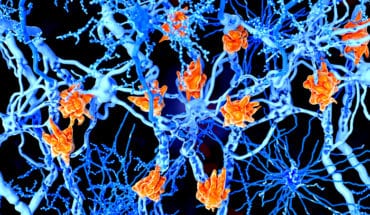The Bionics Institute is bringing hope to people with rheumatoid arthritis: The tiny piece of ground-breaking technology – the size of a thumbnail – could replace drug treatment for thousands of people suffering from pain and inflammation caused by the disease.
Karen Morgan, 57, who has lived with rheumatoid arthritis for over 22 years says she will be first in line to test the device when it goes into clinical trials.
She said: “The medication makes the pain bearable most of the time, but when I have a flare up it’s a struggle to do anything.
“Some days my joints are burning hot, stiff and swollen. I find it very hard to walk. I can’t put my car key into the ignition.”
Affecting nearly half a million Australians, rheumatoid arthritis is currently treated using a cocktail of drugs with unpleasant side effects that have severely restricted Karen’s life.
“The medication has pretty much destroyed my immune system. During COVID I’ve had to avoid people most of the time. It’s been awful.”
Amazingly, this new treatment is being developed by Karen’s niece, Bionics Institute researcher Dr Sophie Payne and her team.
Dr Payne says the battery powered device stimulates a major nerve, called the vagus nerve, with electricity to reboot the body’s built-in healing system.
She said: “In rheumatoid arthritis, the body attacks its own joints causing inflammation, pain and stiffness.
“By stimulating the vagus nerve, which controls the body’s anti-inflammatory reflex, we can dampen the inflammation to reduce the pain and stiffness and allow people with rheumatoid arthritis to move freely.
“We’re hoping to take it to clinical trials in just two years,” she said.
Find our more from our Rethinking Rheumatoid Arthritis event
Dr Evange Romas, head of the rheumatology unit at St Vincent’s Hospital is working closely with the Bionics Institute team to ensure the device is optimised for his patients.
He says that, in addition to coping with damaging side effects, around 40% of patients stop responding to drug therapy and he is looking forward to the day when he can offer the new vagus nerve device treatment as an alternative.
He said: “I have been involved in some great advances in the treatment of rheumatoid arthritis during my career.
“However, this new treatment is incredibly exciting and I’m doing everything in my power to help the Bionics Institute researchers get it into the clinic for the benefit of my patients as soon as possible.”
Bionics Institute CEO, Robert Klupacs says the beauty of the device is that it can be attached to the vagus nerve in the abdomen using keyhole surgery. And the battery, which sits under the skin at hip level, only needs to be changed every ten years.
“We’re working towards the day when people with rheumatoid arthritis won’t have to remember to take medication every day and won’t have to cope with side effects.
“They can ‘set and forget’ about this electrical vagus nerve device, leaving their body to do the work for them,” he said.
Every donation towards this research will help the Bionics Institute take the vagus nerve device to clinical trials much more quickly and transform the lives of people like Karen.
To donate to the Bionics Institute, go to: www.bionicsinstitute.org/donatenow
- Gut microbiome could delay onset of type 1 diabetes - 3rd April 2025
- The da Vinci 5 Robot Is Set To Transform Bariatric Care: - 31st March 2025
- Beyond money: the hidden drivers fuelling child food insecurity - 31st March 2025






